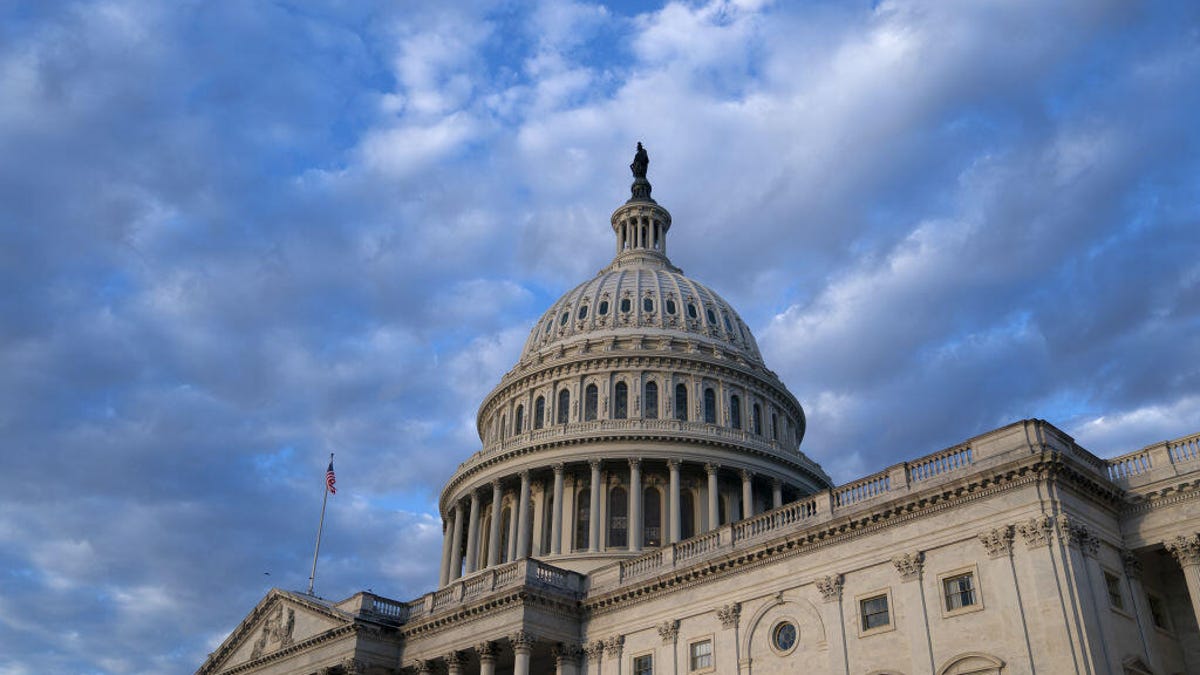US Senate to issue subpoenas for Mark Zuckerberg, Jack Dorsey, Sundar Pichai
The Senate Commerce committee wants the CEOs of Facebook, Twitter and Google to appear.

The heads of Facebook, Twitter and Google are being called to appear before a US Senate committee.
The US Senate's Commerce committee on Thursday voted unanimously on a bipartisan basis to issue subpoenas to Facebook's Mark Zuckerberg , Twitter's Jack Dorsey and Google's Sundar Pichai , as Congress considers changes to liability protections granted by Section 230 of the Communications Decency Act.
The three tech CEOs would appear before the committee as witnesses, but the date of the hearing hasn't been determined.
In July, Zuckerberg and Pichai both made virtual appearances before a House antitrust subcommittee, along with the CEOs of Amazon and Apple.
Twitter and Facebook declined to comment on the subpoenas, but Facebook noted that its executives have testified in front of the Senate Commerce committee three times in the last three years, and have testified over 20 times in front of US congressional committees in the last four years.
Google didn't respond to a request for comment.
Sen. Maria Cantwell, from Washington and the leading Democrat on the committee, initially opposed the subpoena, which had been introduced by Chairman Roger Wicker, a Republican from Mississippi. But Cantwell changed her position after Republicans included language in the subpoena regarding privacy and "media domination."
"There is a lot we want to talk to tech platforms about, like privacy and anti-competitive media practices," she said in a statement. "I thank the Chairman for broadening the subpoena to cover these issues."
She went on to say that "Section 230 deserves a serious thoughtful discussion. But the hearing should not be used to try to have a chilling effect on social media platforms who are taking down false COVID information or hate speech."
The news comes as members of Congress on both sides of the political aisle take aim at big tech companies ahead of the 2020 election. On the House side, a Judiciary antitrust subcommittee met Thursday to follow up on a hearing it held in July where Zuckerberg, Pichai and Apple's Tim Cook and Amazon's Jeff Bezos testified about the state of competition in digital markets.
The committee is expected to issue its report on antitrust allegations against Apple, Amazon, Facebook and Google as soon as next week.
What is Section 230?
Section 230 of 1996's Communications Decency Act shields online companies from liability for their users' posts and has come under scrutiny from members of both parties.
Democrats are troubled by the rampant flow of hate speech and of disinformation online, including interference by foreign countries in the 2020 US presidential election. Former Vice President Joe Biden, the Democratic party's presidential nominee, has called for the Section 230 protections to be revoked entirely. Other senior members of the party, including Speaker of the House Nancy Pelosi and Sen. Richard Blumenthal, have taken more-nuanced approaches, suggesting revisions or updates to the law.
Republicans, led by Trump, allege that their speech is being censored by Twitter, Facebook and other social media sites. There's no evidence the allegation is true, and the companies strongly deny the claim.
In May, Trump signed an executive order asking the Federal Communications Commission, which has never regulated online content companies, to reinterpret the statute and use Section 230 as a means to do just that. The executive order followed Twitter's decision to place labels on two Trump tweets about mail-in voting, saying they contained "potentially misleading information."
Republican lawmakers have also introduced legislation to amend Sec. 230, including a bill from Sen. Josh Hawley that would require companies to prove a "duty of good faith" in their content moderation in order to receive Section 230 protections. Republican Sens. Marco Rubio, Mike Braun and Tom Cotton co-sponsored the legislation.
It's unlikely that any Section 230 reform legislation will pass before the end of the year. Still, lawmakers, many of whom face reelection in November, are attempting to show they're working on the issue.



